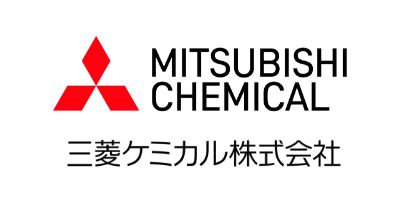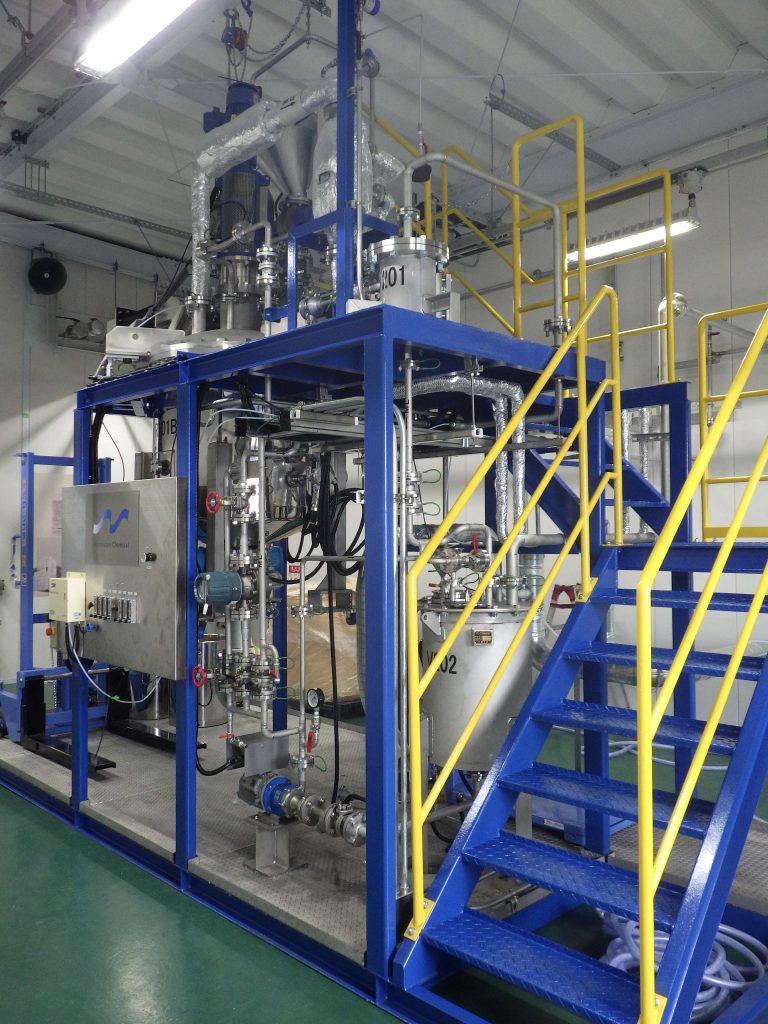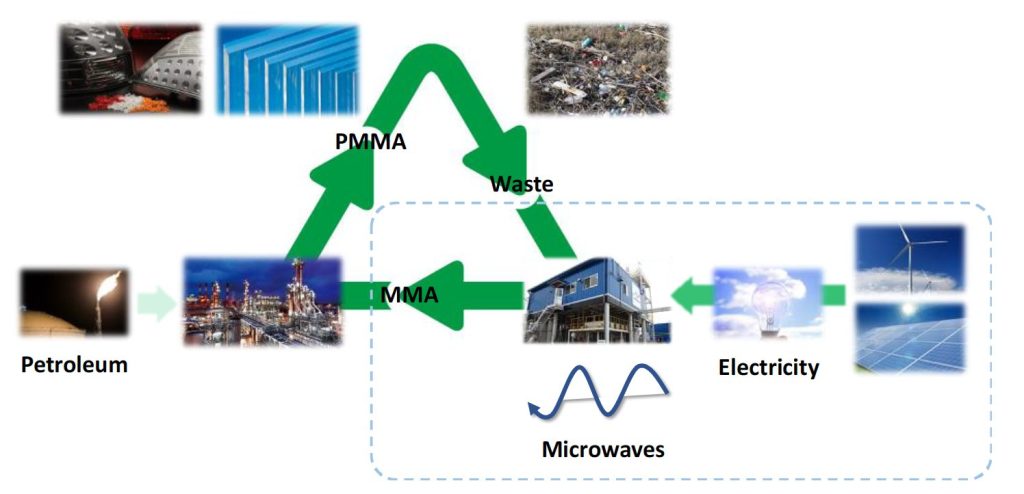Realizing a circular economy for acrylic resin, the ‘queen of plastics
Mitsubishi Chemical Corporation Acrylic Resin Chemical Recycling Project

-
Industry:MaterialsEnvironmentPetrochemicals
-
Processes:Pyrolysis

Background
Achieving circular economy
through chemical recycling
Research and development of plastics chemical recycling is currently being carried out around the world. Acrylic resin – used everywhere from signboards for convenience stores to aquarium tanks and displays in department stores – is no exception.
Chemical recycling is a method whereby waste plastic is chemically decomposed back to raw materials, which are then recycled to virgin plastics. The industry has awaited this next-generation technology for a long time and while many manufacturers have been working on acrylic resin recycling, no method had been established that achieves high quality while remaining cost effective.
Mitsubishi Chemical, the leading manufacturer of acrylic resins, had conducted research and development aimed at fulfilling its social responsibility making a positive contribution to a circular economy. However, it had been unable to achieve its desired outcome.
The significance of using microwaves
Achieves decomposition into high-purity monomers
without reliance on indirect external heating
Acrylic resin has the property of being decomposed into an MMA monomer (the raw material for acrylic resin) when heated to 400-500°C. Previously, companies would place acrylic resin in a reactor and heat it indirectly from outside the reactor using a direct flame, similar to cooking something in a saucepan or frying pan. This method comes with its own myriad difficulties, such as CO₂ emissions from the heating source, impurities arising from difficulties in controlling the temperature, or problems in the continuous operation of the plant due to scorching.
In contrast, microwaves do not need to apply flames directly to the reactor to heat it as is done with conventional methods. Rather, the acrylic resin inside the reactor can be heated directly, allowing for proper temperature control. This not only reduces CO₂ emissions while avoiding problems associated with scorching, but also makes it possible to obtain high-purity monomers. It is a safe process as there are no exposed flames and a smaller reactor can be used compared to a conventional method.
Microwave process is a technology that not only produces high quality recycled resin, but also provides both high efficiency and low cost. In the future, monomers recycled by microwave process shall s shine radiantly as acrylic resin – the queen of plastics.
Development story
Speed to industrialization,
another value proposition
offered by MWCC
Fierce competition abounds in the development of chemical recycling. It is not just limited to acrylic resin manufacturers, but to other types of resin too.
Against this backdrop, acrylic resin samples for testing arrived at Microwave Chemical’s laboratory in 2019, when research and development began. Experiments showed that acrylic resin molecules have the property of vibrating and being directly heated by microwaves. This was when it was proven that acrylic resins could be heated directly by microwaves. Based on these results, in 2021, Mitsubishi Chemical and Microwave Chemical would embark on the joint construction of a demonstration plant. Scaling-up accelerated rapidly by making the most of our experience and technology in scaling this technology.
Mitsubishi Chemical’s representatives gave their impressions of Microwave Chemical, saying that they were impressed by not only the technology, but the ‘speed’ which exceeded their expectations. We believe that not only the proprietary technology, but also the development team consisting of microwave experts and the establishment of a unique development infrastructure were all factors that combined to make it possible to take the shortest route towards scaling-up the chemical recycling of acrylic resins.

Social impact
Leading society as a pioneer
in chemical recycling
Studies towards the operation of the first plant are currently proceeding steadily. This has the significance of achieving a circular economy in the chemical industry and, moreover, of contributing to a sustainable society.
As the race for development spreads across the world, examples of chemical recycling, where waste plastics are returned to virgin condition, are rare in society. This project could become a novel successful model as an example of plastic recycling. Acrylic resin is expected to create new applications as a new value-added resin that is “chemically recyclable”.
Acrylic resins are also widely used in cars. Together with Honda and the Hokkaido Auto Dismantler Corporation, Mitsubishi Chemical is also conducting horizontal recycling demonstration tests of waste acrylic resin, such as tail lamps. Microwaves are used for decomposition. The project has paved the way for the chemical recycling of acrylic resin and has contributed significantly to the realization of carbon neutrality in the automotive industry.
The technology and know-how acquired through this project will hopefully be applied to other general-purpose resins. We will continue to develop chemical recycling technologies for waste plastics and create businesses that lead society into the future.
